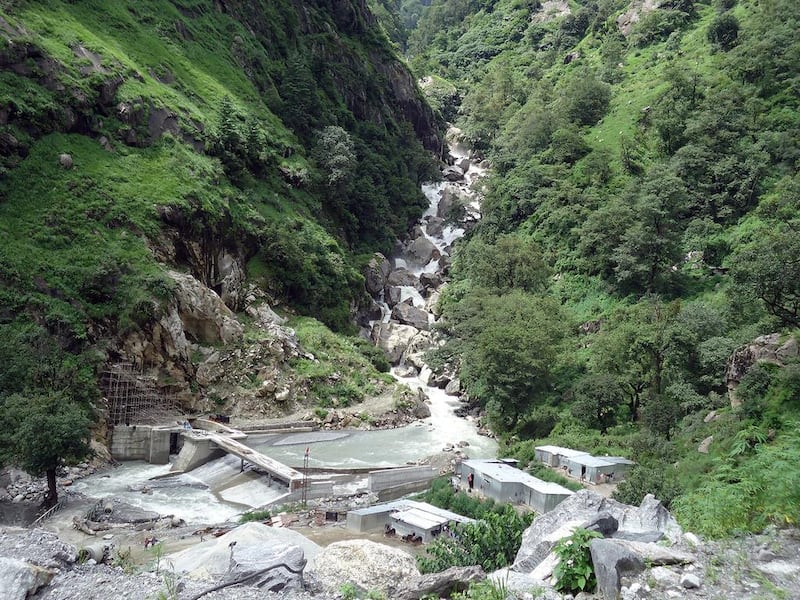Abu Dhabi National Energy, known as Taqa, has abandoned a deal to buy two hydroelectric power plants in India for US$1.6 billion.
Jaiprakash Power Ventures, the Indian company selling the plants, said the move was as a result of a change in strategy for Taqa.
“They have been constrained to take the said decision as a result of a change in the business strategy and priorities of their group,” said Jaiprakash Power in a filing yesterday on the Bombay Stock Exchange.
A spokesman for Taqa declined to comment.
The majority Abu Dhabi government-owned company’s stock closed 4.5 per cent higher yesterday at Dh1.15 a share.
The exit is the latest sign of a more cautious approach for the company after several years of far-flung international acquisitions. In November, it shelved a US$12 billion coal project in Turkey and said it was seeking to reduce its entire business by about two-thirds to cut costs. The downsizing involved the shedding of staff at Taqa’s headquarters in Abu Dhabi and in Canada.
In March, Taqa said that it was leading a consortium to buy the Baspa Stage II and Karcham Wangtoo hydroelectric plants, located on the River Satluj Basin in the northern state of Himachal Pradesh, from the Jaypee Group, the parent company of Jaiprakash Power. Taqa was to hold a 51 per cent stake in the consortium, with an unnamed entity, reported to be Canada’s Public Sector Pension Investment Board, holding a 39 per cent share. IDFC Alternatives’ India Infrastructure Fund II, an Indian private equity fund, would hold a 10 per cent stake.
Taqa’s withdrawal from the deal made it liable to the payment of a break fee, Jaiprakash Power said in the filing.
Taqa posted its first annual loss last year following writedowns of US$884 million in Canada. Shortly after the announcement of the loss, the company’s chief executive Carl Sheldon, who had held the role since 2011, stepped down, with his duties passing to Edward LaFehr, who became chief operating officer. Mr LaFehr said in April that the loss would not curtail the company’s plans to make future investments or service its debt.
The decision not to go ahead with the purchase of the power plants is the second investment U-turn by the company since it decided in November to stall a government-backed agreement to spearhead a $12bn coal mining and power production project in Turkey. Mr Sheldon said at the time the plans were "shelved".
It is also a blow for the Jaypee Group, the builder of a variety of infrastructure in India, which is seeking to cut its multibillion dollar debts.
Taqa still holds interests in India. In January of last year, the company said it was purchasing an interest in Himachal Sorang Power, the developer of a 100 megawatts hydroelectric plant in the same state, Himachal Pradesh. The plant was scheduled to become operational this year. Taqa also operates a 250MW lignite power station in the Neyveli region of Tamil Nadu. The Baspa Stage II and Karcham Wangtoo plants have a combined power generation capacity of 1,391MW.
As part of a shake-up of its global operations, Taqa has reorganised its operations in Canada and offloaded other parts of its business that were less profitable. Mr Sheldon said in November that the move coincided with a refocus on opportunities closer to home, such as Iraq, where it is drilling in the Kurdish region, and Egypt, where along with Mubadala Petroleum and International Petroleum Investment Corporation, it is evaluating infrastructure investment.
Still, the company’s operations remain wide-ranging – besides the North American acreage it pumps oil in the North Sea, produces power in Ghana, and stores gas in an underground reservoir in the Netherlands.
tarnold@thenational.ae
Follow The National's Business section on Twitter





